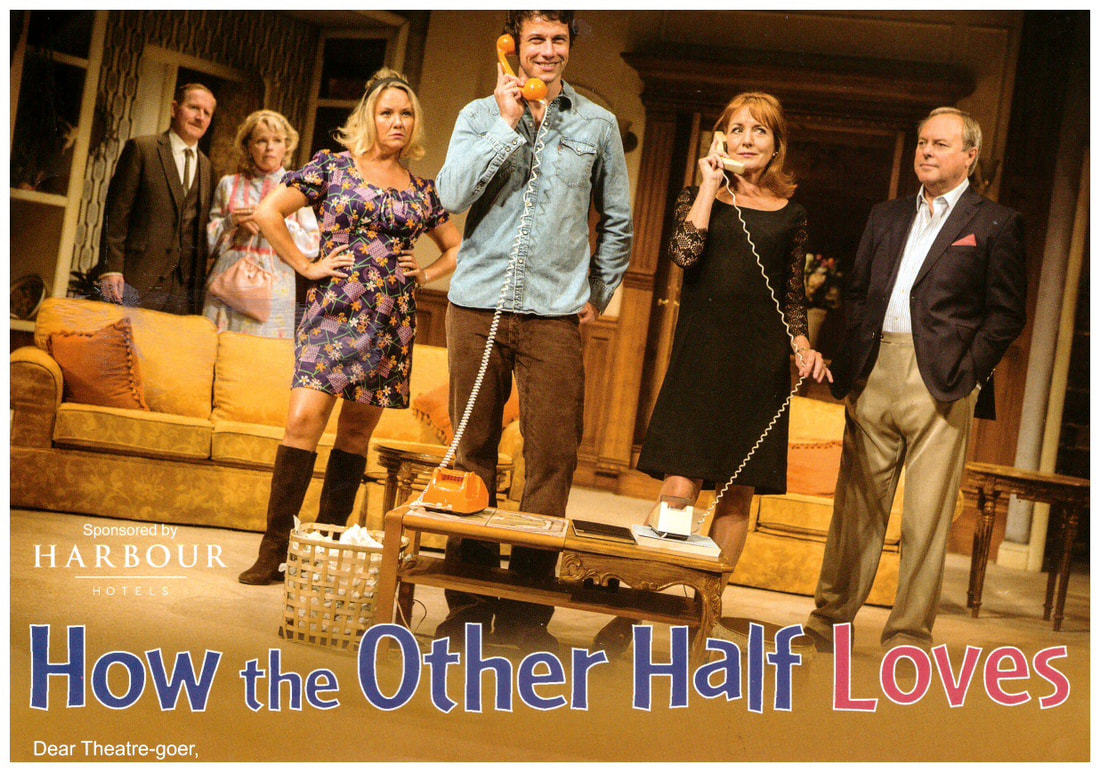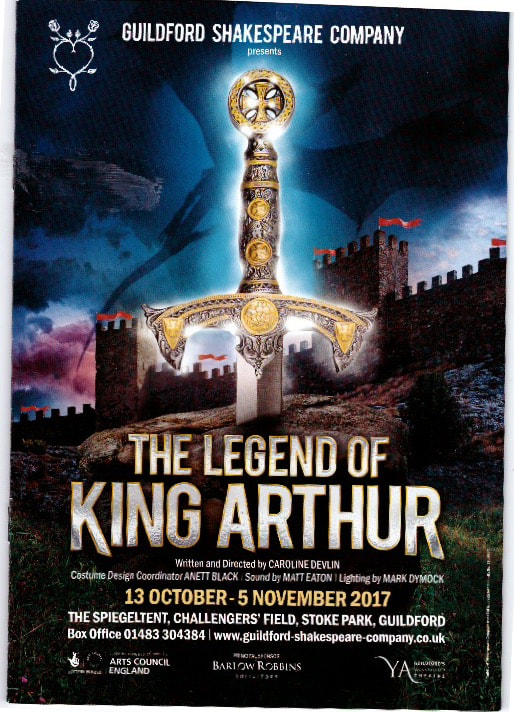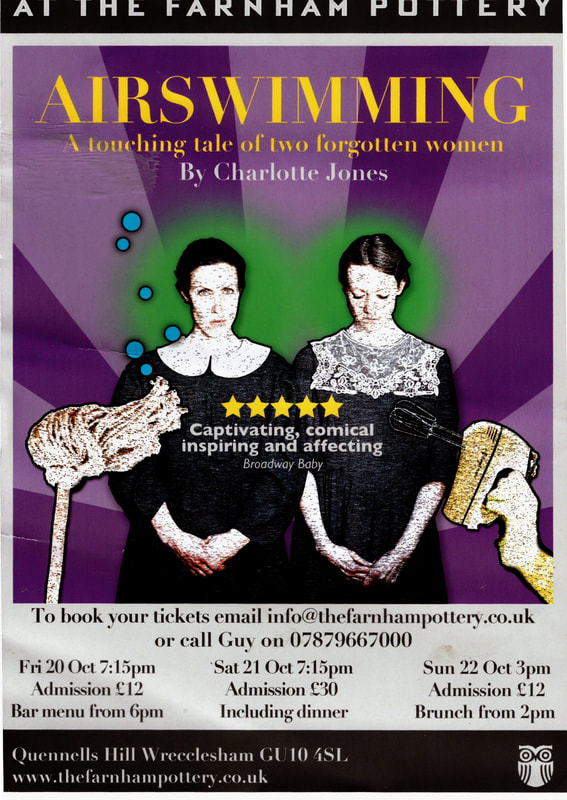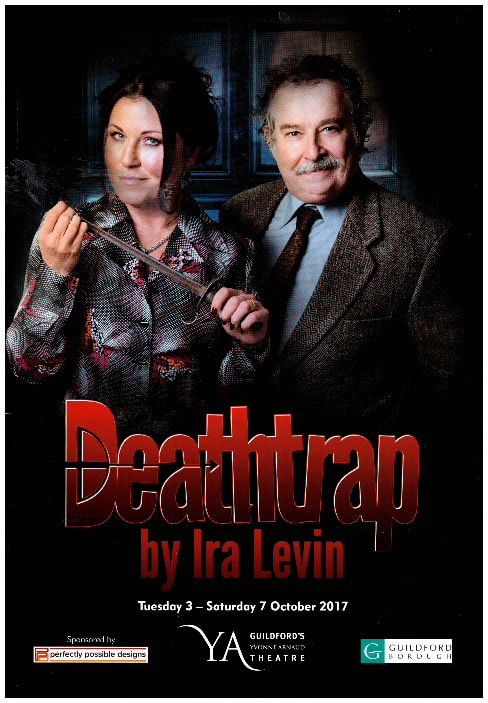|
How the Other Half Loves
by Alan Ayckbourn Yvonne Arnaud Theatre, Guildford. FIVE STARS A hilarious farce and and a remarkable piece of theatre - Alan Ayckbourn and director Alan Strachan achieve the impossible – a play in four dimensions! Two adulterers involve an innocent third couple in their attempts to avoid discovery by their spouses. The resulting mayhem involves two dinner parties (that familiar Ayckbourne scenario) fraught with embarrassments, disasters and comic misunderstandings. The social fallout keeps the audience on the edge of their seats and laughing, the only ones in the know. And all of this takes place in two different houses, on two different evenings - but simultaneously on one stage set! The staging, design and acting require master skills. The characters in both houses cross and pace the stage, playing out the events separated by theatrical time and space, but to the audience’s view, only missing collisions by inches. There are very funny moments at key points when the two realities seem to converge! The cast are superb. All are experienced actors on screen as well as stage: Charlie Brooks appears regularly on EastEnders, as “Janine Butcher”. Here she plays Teresa Phillips, a feisty proto-feminist, with alternate ferocity and pathos. Leon Ockenden as her husband is determined to survive as an energetic, unreconstructed male. In contrast, Matthew Cottle and Sara Crowe as Mr and Mrs Featherstone have a marriage that might have been made in Victorian England. Their cringing class-consciousness allows us to laugh heartily at a generation where having to ask to go to the toilet could be an acute social embarrassment. Sarah Crowe, speechless in the presence of “her betters”, and meekly accepting of her husband’s patronising “protection” is a brilliant caricature. The hard, elegant brightness and ruthlessness of Caroline Langrishe as the boss’s wife, Fiona Foster, may have touched a chord for many in the Guildford audience, as she struggles to make her doomed dinner party “work”! Robert Daws as her cuckolded husband creates a sympathetic character despite (or for the audience, because of) his endless rambling, painful narration of half-remembered anecdotes and jokes. He is Ayckbourne at his most Pinteresque. This is one of Alan Ayckbourne’s early plays, first staged in 1970. Much of the fun hinges on phone calls between the houses being intercepted, so the play has to be set in its original era, before personal mobile phones. In any case, the action and dialogue depend very much upon that time’s social mores of marriage, divorce and gender relationships. In common with all of Alan Ayckbourn’s plays, this play comments without preaching on those issues, as well as being a brilliant farce. I loved it. The theatre was very full on Monday night – get tickets if you can. Janice Dempsey 24/10/17
0 Comments
The Legend of King Arthur
written and directed by Caroline Devlin for the Guildford Shakespeare Company Another smash hit for all ages, 7 to 107 – never a dull moment in this tale of knights, dragons, magic and a ‘Divine Unseen’ in the voice of Brian Blessed! Here is the Arthurian legend brought up to date and performed with enormous panache and glee by the talented GSC. Once more they have erected the gorgeous Speigeltent from Belgium in Challenger’s Field, within easy reach of both the Spectrum and Challengers’ parking areas, and used its circular stage and amazing pop-ups and trapdoors to the full. It’s a tale that almost all British adults know, of how Arthur Pendragon is guided by the magician, Merlin to pull out a magic sword from a stone to prove himself rightful king , how he founded the Fellowship of the Round Table where all his knights had a voice in government, and his conflict with the wicked witch Morgana. But Caroline Devlin has researched and included many details of the legend that i wasn’t aware of before. The origin of Morgana’s black magic, the myth of the White Dragon versus the Red Dragon and the vengefulness of Mordred, the son of Morgana, are all included here. It’s more than a simple retelling. From the moment that Merlin first swirls his wonderful swinging coat and raps his magic staff like thunder on the boards of the stage, we’re treated to shape-shifting, flashing coloured lights, huge sharp-looking swords, roaring dragons and fierce sounds and smoke of battle. And interspersed with the battles, the inspired clowning of Simon Nock, as Fen and four other characters, two of them female! Shape-shifting is a theme: the cast of five actors play twenty-one roles, with the attendant swift costume changes. Noel White, reporting to the voice of Brian Blessed, the Divine Unseen (the irritable overlord of the gods) plays Merlin with the bravura and casual elegance of Dr Who and the face of Brian Cox. As the Archbishop of Canterbury he shape-shifts to an ancient avatar of Leonard Rossiter; as the leader of the Wolfmen he is sinister, threatening and unrecognisable! Simon Nock is absolutely the best comic this side of pantomime, whatever the gender of the role he’s playing. There’s brilliant character acting by Alexander Varey as Arthur and King Uther, Emma Fenny as Mordred, a vicious young man – and also the dignified lady of the Lake - and Emily Tucker as Morgana (and Guinevere, and two knights!). It’s a miracle of theatre performance and direction. The patriotic and humanist sentiments of the last few scenes are heavily emphasised and of course appropriate to this tale of a good king overcoming evil. There’s a lot of strobe lighting during battle scenes, which sufferers from some medical conditions need to know. The night I went, the audience was perhaps one-third young people and two-thirds adults. All of us joined in the flag-waving and gasped at the magic. This is a great evening for theatregoers of any age – don’t miss it! FIVE STARS The Spiegeltent, Challenger’s Field, Stoke Park, Guildford. 13th October – 5th November 2017 Box Office 01483 304384 This review also appears in Essential Surrey's Theatre and Arts pages (click here) Airswimming by Charlotte Jones.
The Weird Sisters Theatre Company. Directed by Stephanie Goodfellow. This play moved me by turns to laughter, outrage, pity and finally real tears. It was staged this week at Farnham Potteries, Guy Hains’s wonderfully atmospheric arts centre on the outskirts of Wrecclesham, near Farnham, Hampshire. For me, the spare setting and intimate performance space of the beautifully restored Pottery added an extra dimension to the play’s narrative. In 1924, when the play opens, “Asylums for the Criminally Insane” were full to overflowing with people who had been “put away” by their families and the judicial system as deviants from the social norms of the time. Many lived out their whole lives there, cut off from the outside world, without hope of release. “Airswimming” was written in 1997, only 25 years after cases like those of Persephone (“Porph”) and Dora (“Dorph”) were brought to the eye of reformers and inmates were released into a world where they no longer had a place. When the play opens, we meet two young women as they begin their friendship in “St Dympna’s Asylum for the Criminally Insane”. This proves to be the only human relationship that they will have for the next fifty years. As their conversations develop, we learn what “deviance” has brought each of them to this place. We’re privileged to watch their different characters emerge and inter-react as they endure years of isolation and incarceration. Prey to hopes, fears and memories, driven to the edge of despair, their occasional cruelty, their fantasies, their struggle to retain their own identities, their need for love and fulfilment, are all concentrated in this one mutually dependent relationship. Alison Nicol as Porph (Persephone) is the girl who never grew up, the girl who loved dancing and cries easily. Her fixation on Doris Day, at first an anachronism, becomes clarified as the escapist dream ideal of the twentieth century woman (no matter that Doris Day was in life herself an abused woman whose home life was very different from the happy family milieu her films sold to the public). Tanya Chainey’s Dorph (Dora) has her own escapist fantasy: she has retreated to a military persona, long before women had any such active role in the army. She is keeping discipline, a stiff upper lip, never breaking ranks. Yet even this escape doesn’t make her safe from incipient breakdown. The contrast between these two fine performances is extremely moving. Even while laughing at the silliness of Porph’s absurdities and Dorph’s grudging acceptance and reluctant involvement in them, we know the pain that gives rise to them and feel respect and pity. We were sitting within a metre of the actors for much of the play, totally absorbed. For an hour and a quarter we were witnesses to the miracle of endurance and love that is Persephone’s and Dora’s dynamic relationship. Emotions flickered and flowed across the actors’ faces, as strength and weakness alternated between them. Every facial expression, every gesture of hand and head, was perfectly conceived and inevitable to the moment and the role. These are bravura performances in a play that is not just about lives wasted by an iniquitous social system, but about being human. FIVE STARS
The cast includes Jessie Wallace and Paul Bradley, both well known from EastEnders and other television shows, as well as on the stage. Bradley plays the would-be murderer with gusto and a shambling humour that allows his comic potential full rein. Jessie Wallace is sadly under-used in her undemanding role (we remember her as Marie Lloyd and other vivacious characters on stage and screen). The star performance is by Beverley Klein as Helga Ten Dorp, the neighbour whose clairvoyant skill both reveals and muddies the plot at various moments throughout. Her over-the-top caricature had the audience rocking with laughter. Sam Phillips portrayed the young writer in all his suspicious innocence and Julien Ball completed the cast of five as an unimaginative lawyer.
The direction is excellent. The static setting of the Bruhls’ living room caused criticism of the cinema adaptation by Sidney Lumet (1982 starring Michael Caine and Christopher Reeve). Here on the stage, scene transitions are enlivened by minute-long showings of relevant movie clips from classic crime thrillers, which also serve to keep the audience second-guessing the play’s plot. Ira Levin also wrote Rosemary’s Baby and The Stepford Wives. No wonder that the writer Stephen King is a number-one fan of his works. Levin’s achievement is to create suspense, horror and humour all at once, with clever, intelligent psychological writing, but a minimum of gore or physical violence. Deathtrap is a masterpiece of audience misdirection. It’s a psychological rollercoaster that keeps its pace and humour right to the last minute. Second-guessed and wrong-footed, we gasped and laughed through the evening and emerged into the real world the richer for having been immersed in this fantasy. This review also appears in the online magazine Essential Surrey. |
Archives
March 2024
Categories
All
|




 RSS Feed
RSS Feed